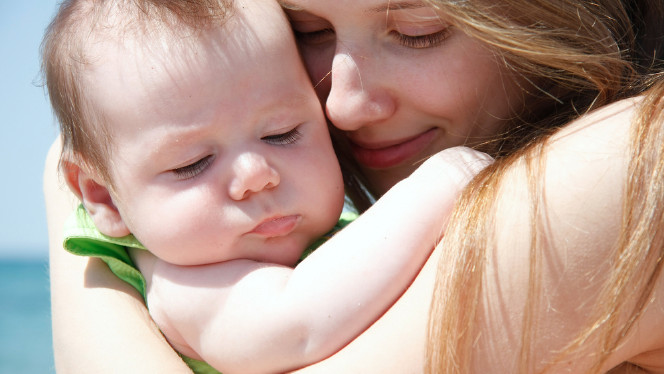10 adoption myths debunked
By Whitney Barrell, KSL.com Contributor
January 12th, 2015 @ 7:42pm
The information that follows is applicable to domestic and foster care adoptions, rather than international adoption.
1. The birth mother/father can show up at any time and take the child — false
Once the adoption is finalized, the child’s adoptive parents are recognized by law. Post-adoption revocation is very rare, but these cases do gain publicity, which further perpetuates the myth. According to Utah law, the birth father can sign relinquishment papers at any time, including before the birth of the child. The birth mother may sign relinquishment papers 24 hours after the birth of the child. Most ethical adoptions are agreed on by birth parents who have made a very sacred decision that they feel is in the best interest of their child.
2. Birth parents are troubled teens and not to be trusted — false
On average, birth parents are in their 20s. Typically, birth parents choose adoption because they don’t have the means — financially, emotionally or otherwise — to parent the child. This factor doesn’t make a person dangerous or untrustworthy. Consider the amount of trust a birth parent gives an adoptive couple in order to choose them to raise their child.
3. Open adoption (where the adoptee has identifying information about their birth family, and the birth parents choose adoptive parents) is emotionally harmful to the child — false
Open adoption takes away the mystery. When adoptive parents are able to share information about the child’s birth parents and their history, the children understand their beginnings and they understand why a placement decision was made. According to a study completed by the Minnesota/Texas Research Project, birth mothers involved in open adoptions had lower levels of adoption-related grief and loss than compared with those involved in a closed adoption. The study points out "adopted adolescents was no different in levels of adjustment from the national norms. Level of openness by itself was not a major predictor of adjustment outcomes at Wave 2. However, relationship qualities, such as collaboration in relationships and perceived compatibility, were predictive of adjustment across openness levels."
4. Open adoption is like co-parenting — false
Birth and adoptive parents do not share custody. Adoption outlines distinct roles. Open adoption allows for the child to have an ongoing relationship (of some level) with birth parents. Some birth parents report having an aunt/uncle-like relationship with the child.
5. The racial background of most children in foster care is that of a minority — false
According to the most recent Kids Count data, 46 percent of foster children are white, 26 percent are black, 21 percent are Hispanic and the remaining 9 percent are multiracial.
6. Adoption is born of loss — true
Adoption is sometimes the best-case scenario for the birth parents, who aren’t ready to parent; the adoptive parents, who have sometimes been waiting many years to parent; and the child, who is provided a safe, stable home. Despite this, adoption occurs because of a loss — a child's loss of biological parents and the loss of connection to their history. As an adoption community we don’t do anyone any favors by glossing over this fact.
7. Adoption is expensive — true and false
Adoption from foster care can cost little to nothing. Information from the Child Welfare Information Gateway cites domestic adoptions can range from $5,000 to $30,000, and international adoption can cost $15,000 to $30,000. These fees are paid to social workers, attorneys and a small amount (as determined by each state) can be used for birth parent expenses such as rent, maternity clothes, etc. Birth parents are not paid for the adoption.
8. Adoptive parents must be “perfect” to pass the home study — false
Adoptive parents must prove that they can provide financially and emotionally for the child. They are asked about their relationships with family and spouse, employment, plans for when the child arrives and understanding of adoption. Most adoptive parents pass the home study process.
9. Waiting to tell my child he or she was adopted until they can understand is better for them — false
History has been a guide for us in this domain. Historically, adoptions were closed. Because of this, it was easier (and expected) for adoptive parents not share information about their child's origins at all — or if so, later in life. Due to the research on open adoption, we now know that children who are provided information about their birth family early on fare better in the long run emotionally.
10. If I don’t talk to my child about their racial identity (if it's different from my own) then it won’t be an issue — false
Children adopted trans-racially need special attention in order to achieve positive formation of their racial identity. Again, the Donaldson Adoption Institute has found “positive racial/ethnic identity development is most effectively facilitated by 'lived' experiences such as travel to native country, attending racially diverse schools, and having role models of their own race/ethnicity.”
Adoption has always been a way to build families, although in the past two decades, our understanding of best practices for all members of the triad has increased. As this understanding shifts, so does public misunderstanding. Adoption stories and experiences are as diverse as they come, because an adoption experience is a human experience.
Whitney Barrell, LCSW, holds a master's degree in social work from the University of Utah. She is an adoptive parent and works as a child therapist with a particular interest in attachment and adoption. Find out more www.whitneybarrellcounseling.com.

No comments:
Post a Comment